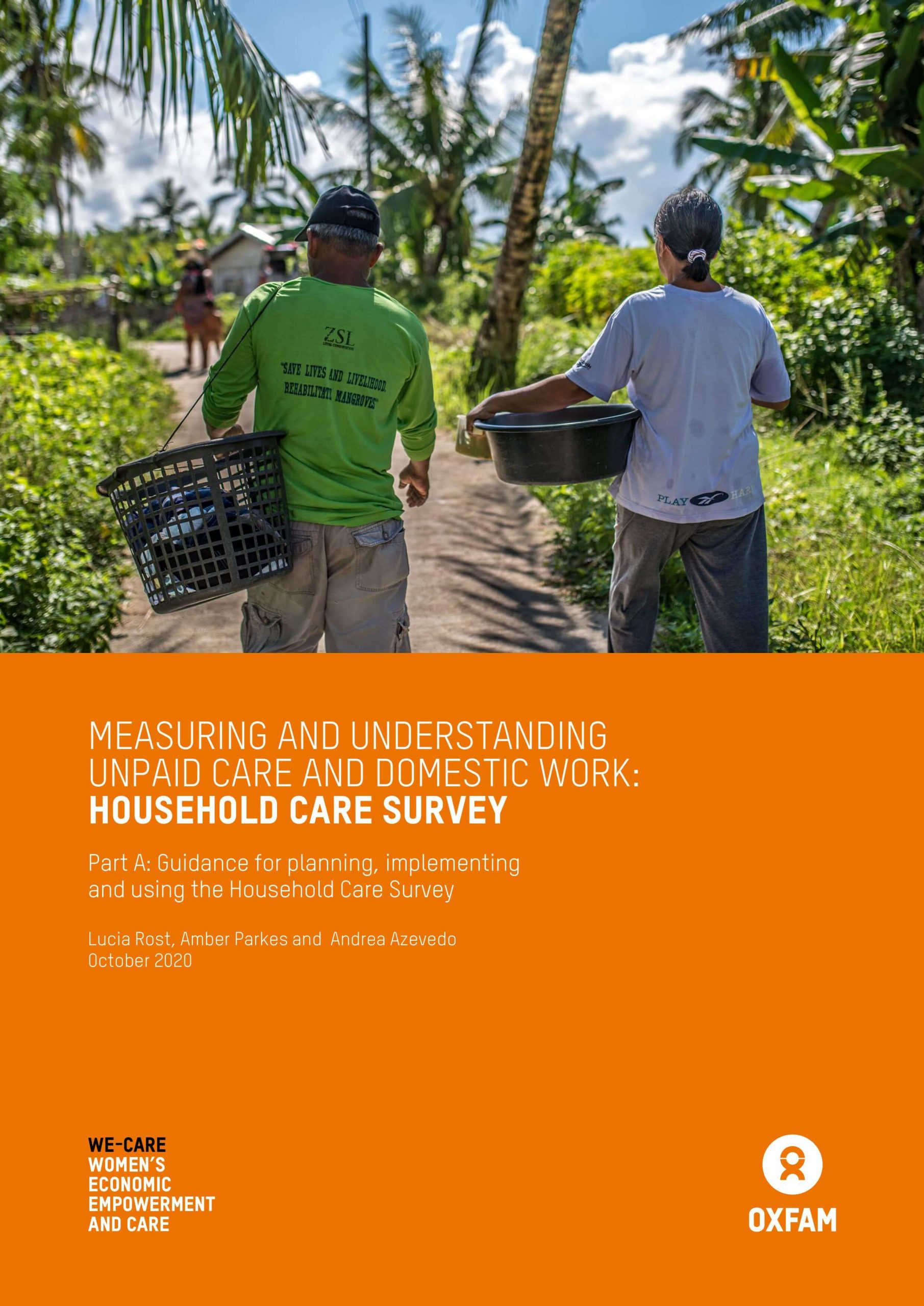This toolkit provides guidance on using Oxfam’s Household Care Survey methodology, which was developed by Oxfam as part of the WE-Care initiative to transform the provision of unpaid care and domestic work.
Unpaid care and domestic work underpins all our lives yet is overwhelmingly provided by women and girls. Recognising unpaid care and domestic work is essential for any initiative that aims to understand and address gender inequality.
The Household Care Survey is a quantitative survey tool that generates context-specific evidence on how women, men and children spend their time, how care is provided, by whom, and the main factors that affect people’s responsibilities for unpaid care and domestic work, such as access to care services, infrastructure and social norms.
The Household Care Survey can be used to generate a baseline, or to measure the impact of a specific policy or programme. The methodology can be integrated into different projects with different objectives and adjusted for use in various contexts.
The Household Care Survey toolkit is designed to be used by development practitioners, policy makers, employers, academics and researchers. Part A provides guidance for planning, collecting, analysing and using Household Care Survey data. Part B provides guidance for understanding, adjusting and using the Household Care Survey questions. Both sections should be read before undertaking the survey.
Rost, L., Parkes, A., & Azevedo, A. (2020). Measuring and Understanding Unpaid Care and Domestic Work: Household Care Survey Toolkit. Oxfam.






